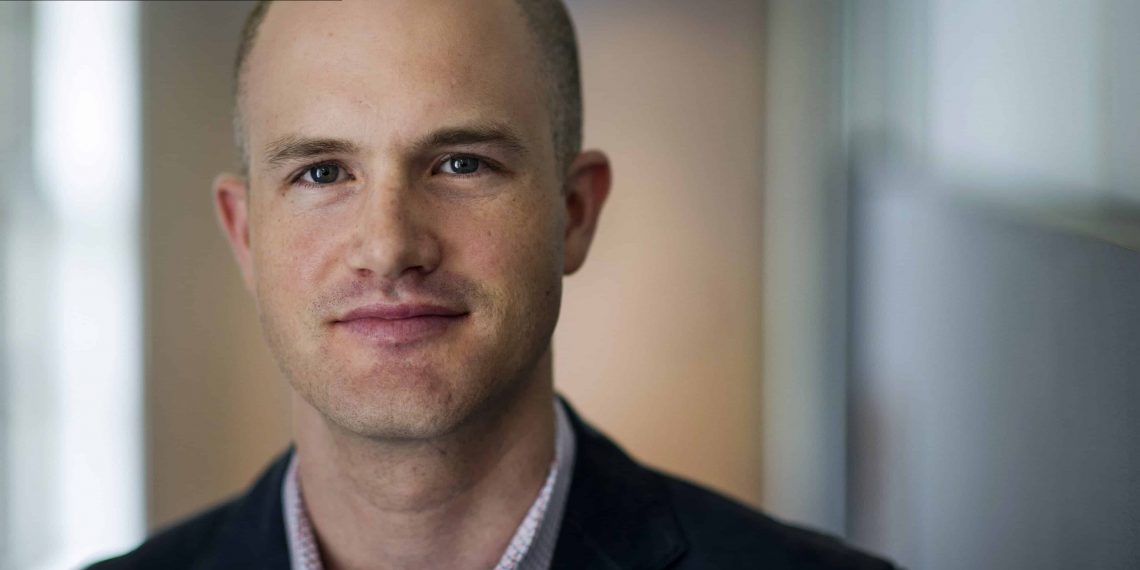Future of Crypto Payments Remains Bright, Says Brian Armstrong
27.08.2024 18:00 1 min. read Alexander Stefanov
Brian Armstrong, CEO of Coinbase, remains optimistic about the future of cryptocurrency payments, believing they will become mainstream within this decade.
Reflecting on his earlier predictions, Armstrong noted that while he initially thought payments would be the primary driver for crypto adoption, trading turned out to be more dominant in the sector’s first decade.
In a recent social media post, Armstrong highlighted the growing use of stablecoins as evidence of increasing crypto adoption in payments. He also mentioned other advancements, such as user-friendly names and simplified onboarding, that could help accelerate the mainstream acceptance of crypto payments.
Armstrong recently revisited Coinbase’s early days by sharing a job listing from March 2012, which was posted on Y Combinator’s website.
The listing, which sought a co-founder for a “Paypal for Bitcoin,” emphasized the need for a technical expert with a strong work ethic. Armstrong’s goal was to create a digital currency platform capable of reducing transaction fees and initially anticipated significant adoption in countries with unstable currencies.
He also shared a screenshot of Bitbank, an early version of Coinbase designed for BTC payments via email. Armstrong actively promoted Bitbank on various social media platforms before co-founding Coinbase Beta with early Bitcoin entrepreneur Ben Reeves.
-
1
Fiserv to Launch FIUSD Stablecoin Across Its Massive Banking Network
23.06.2025 21:00 1 min. read -
2
Mastercard Integrates Chainlink to Power Direct Crypto Access for Cardholders
25.06.2025 18:00 1 min. read -
3
Robinhood Expands Crypto Futures With XRP and Solana Micro Contracts
28.06.2025 13:00 2 min. read -
4
BIS Slams Stablecoins, Calls Them Ill-Suited for Modern Monetary Systems
26.06.2025 9:00 1 min. read -
5
Robinhood to Launch Tokenized Shares of OpenAI and SpaceX for European Users
01.07.2025 11:00 2 min. read
Robinhood Faces Scrutiny from European Bank Over Tokenized Stock Offerings
Lithuania’s central bank has reached out to Robinhood for further details regarding its newly launched stock token products, following a public distancing by OpenAI from the initiative.
USA Imposes Tariffs on Multiple Countries: How the Crypto Market Could React
As President Trump accelerates his tariff strategy ahead of the August 1 deadline, new White House letters reveal formal trade warnings sent to multiple nations, including Tunisia, Cambodia, Indonesia, and others.
UAE Regulators Dismiss Toncoin Residency Rumors
United Arab Emirates authorities have formally denied reports linking Toncoin (TON) ownership or staking to long-term visa eligibility, calling the circulating claims inaccurate and misleading.
Binance Could Introduce Golden Visa Option for BNB Investors Inspired by TON
Changpeng Zhao, the former head of Binance, has hinted at the possibility of a new initiative that would allow BNB token holders to obtain long-term residency in the United Arab Emirates through a token-staking model.
-
1
Fiserv to Launch FIUSD Stablecoin Across Its Massive Banking Network
23.06.2025 21:00 1 min. read -
2
Mastercard Integrates Chainlink to Power Direct Crypto Access for Cardholders
25.06.2025 18:00 1 min. read -
3
Robinhood Expands Crypto Futures With XRP and Solana Micro Contracts
28.06.2025 13:00 2 min. read -
4
BIS Slams Stablecoins, Calls Them Ill-Suited for Modern Monetary Systems
26.06.2025 9:00 1 min. read -
5
Robinhood to Launch Tokenized Shares of OpenAI and SpaceX for European Users
01.07.2025 11:00 2 min. read


